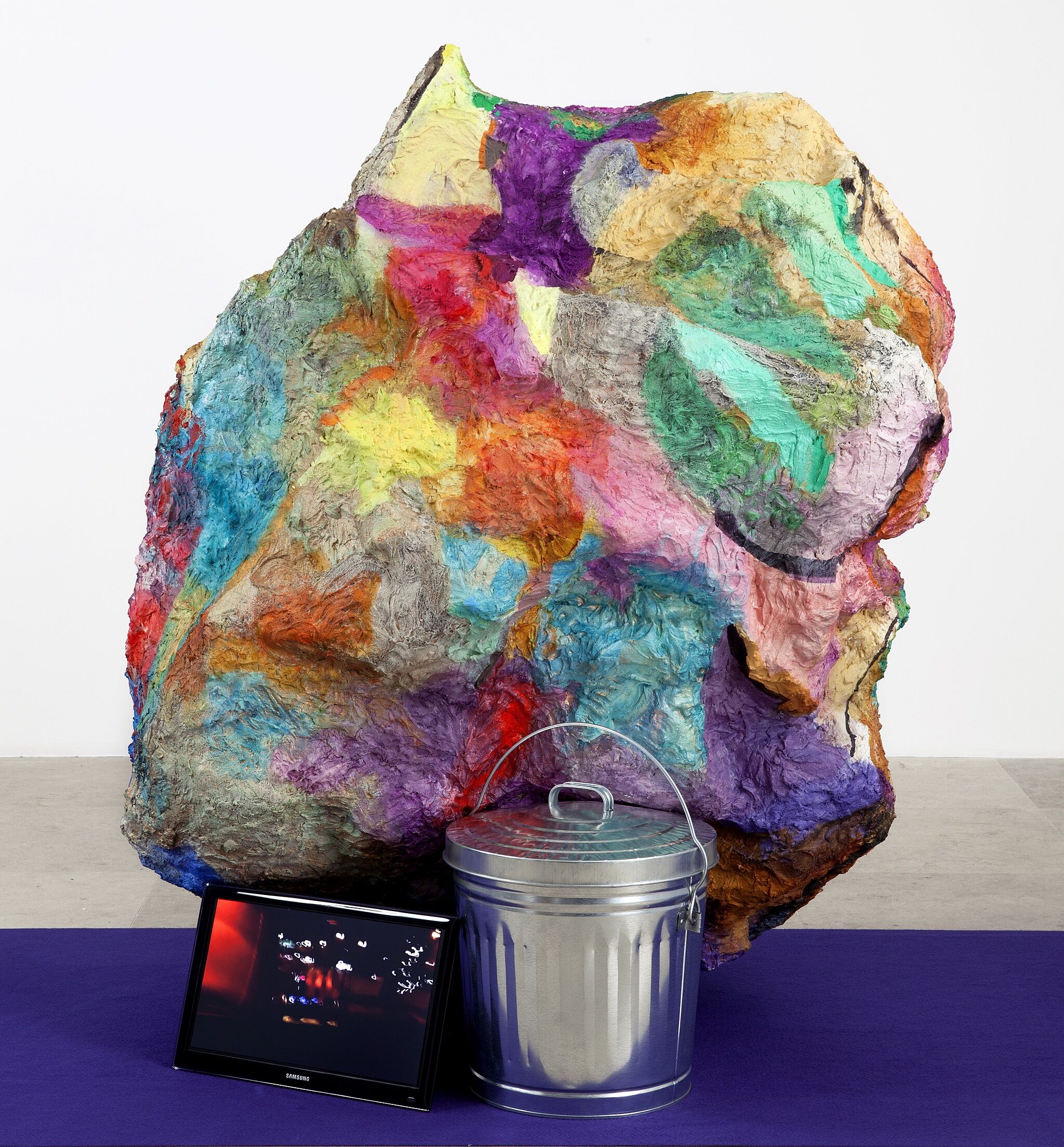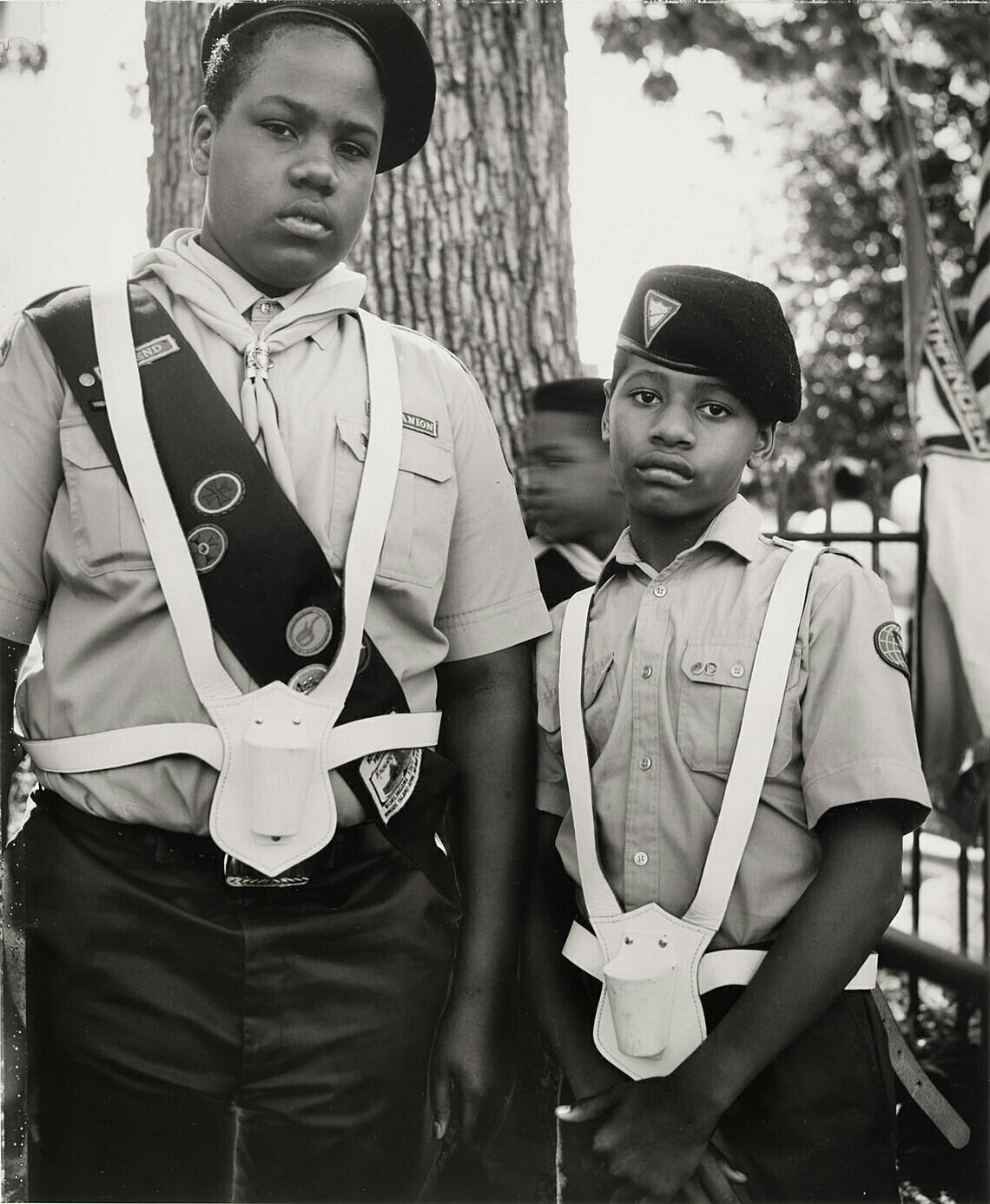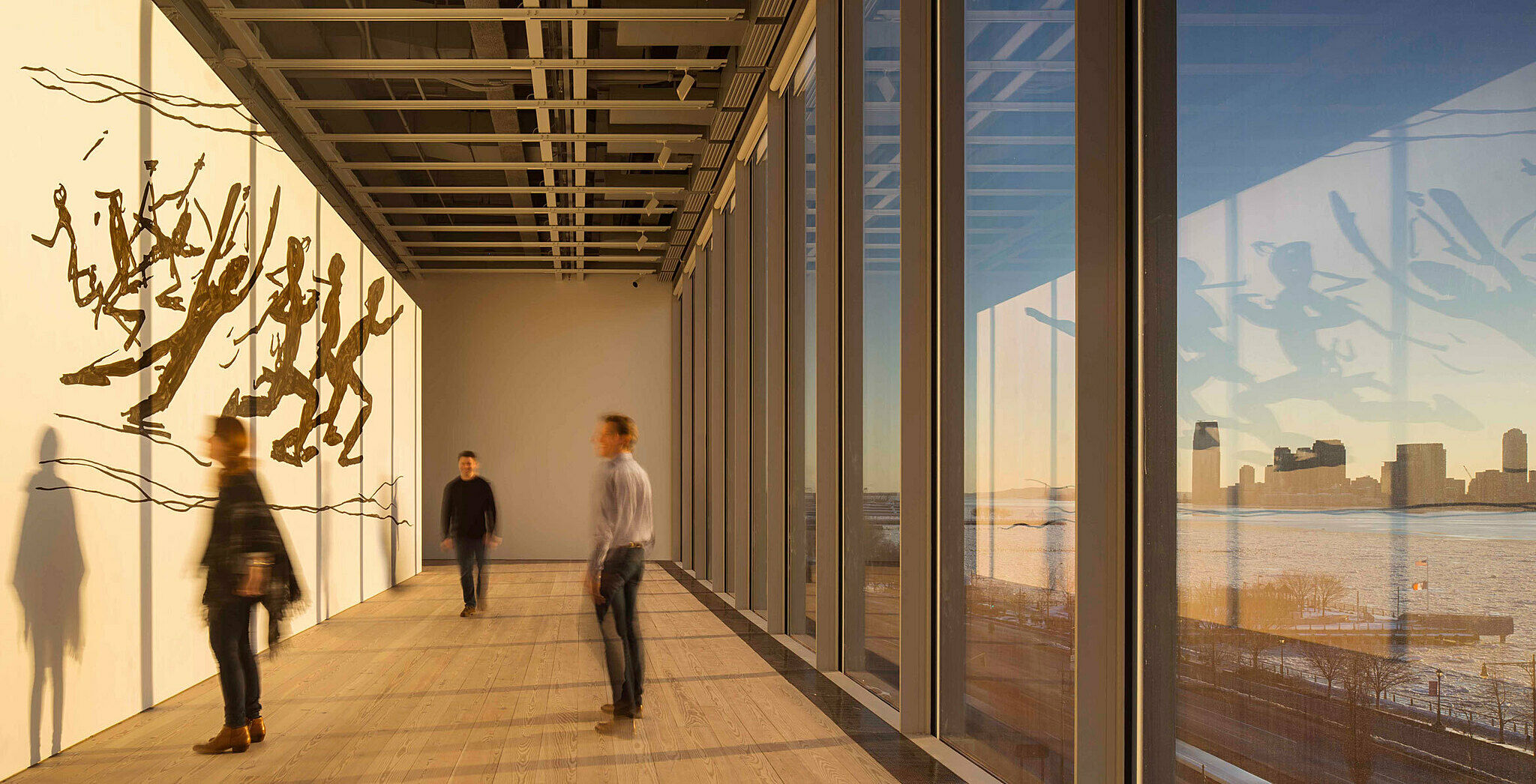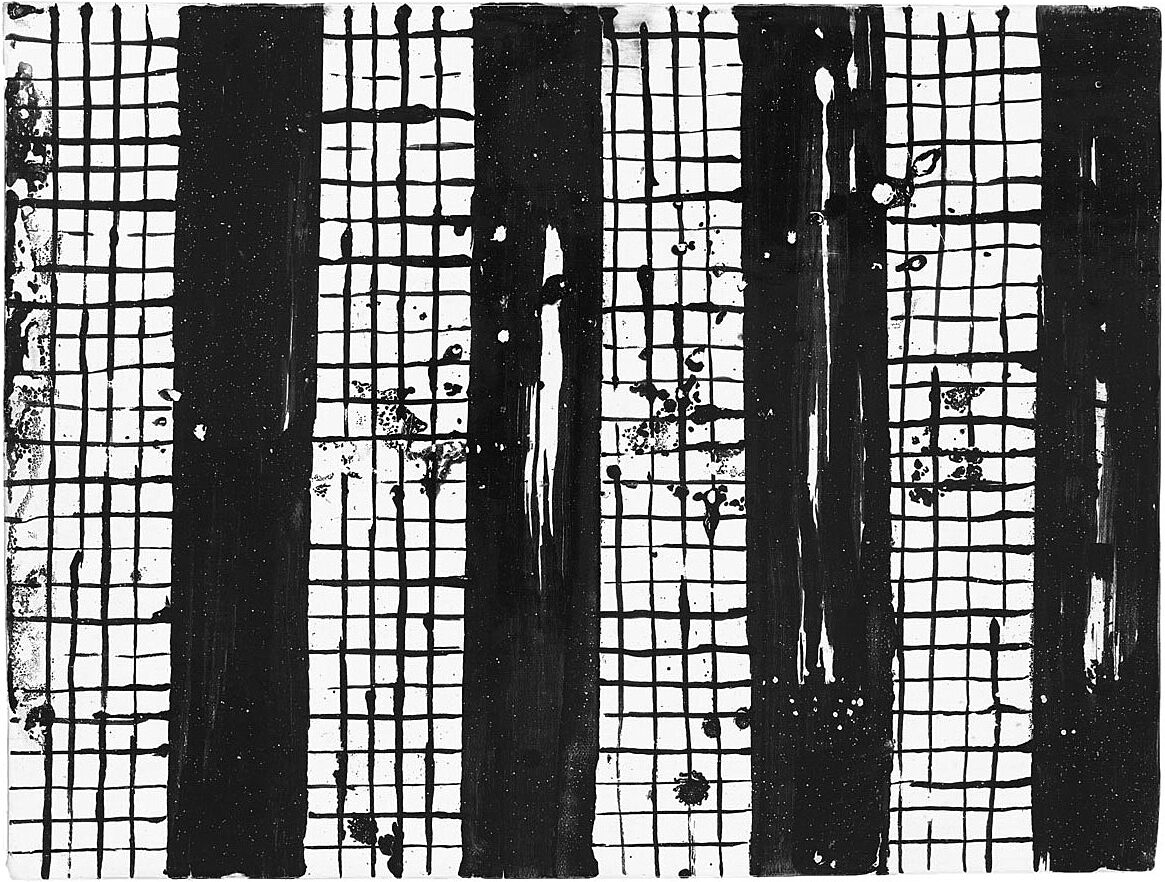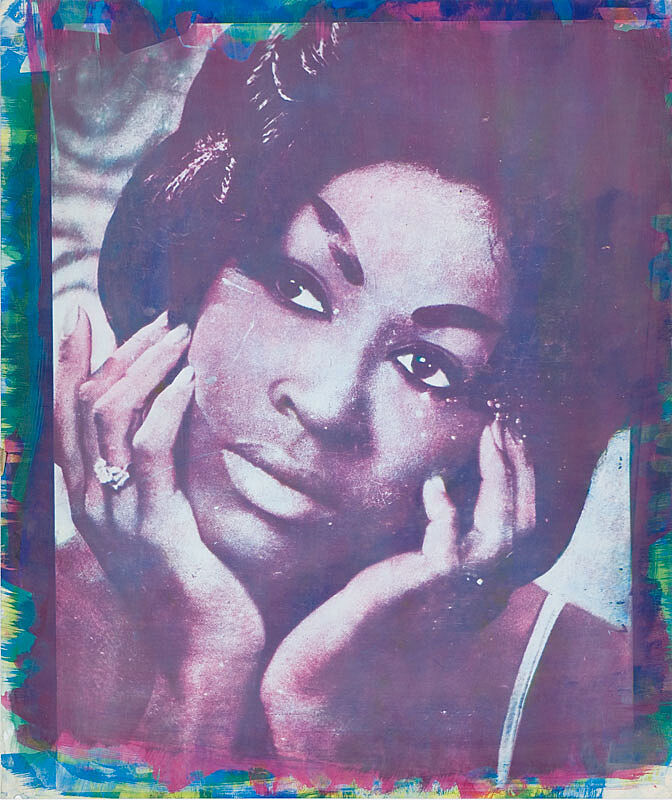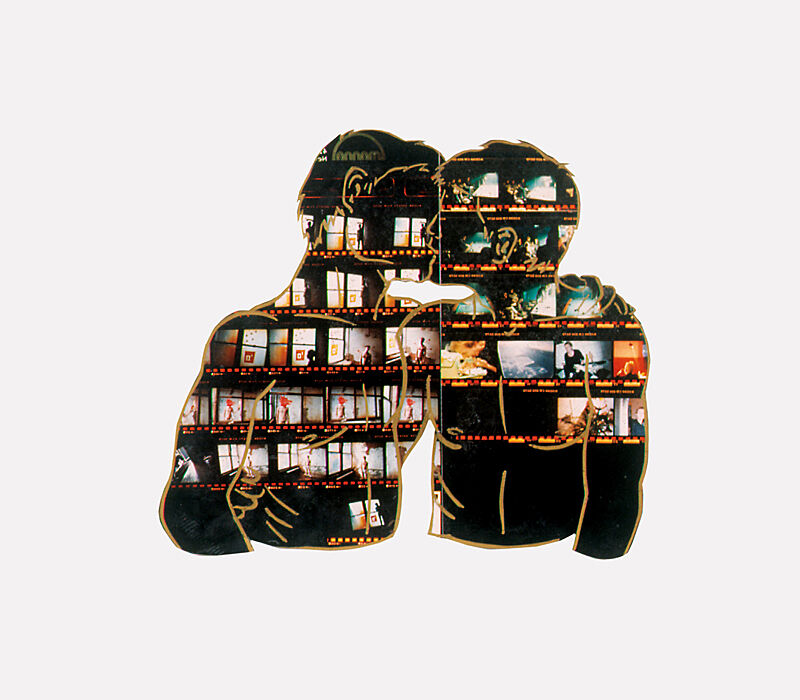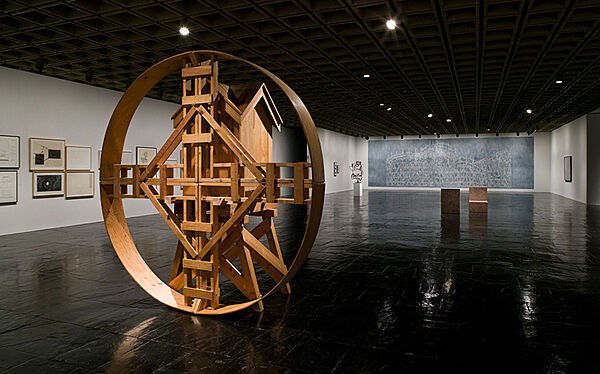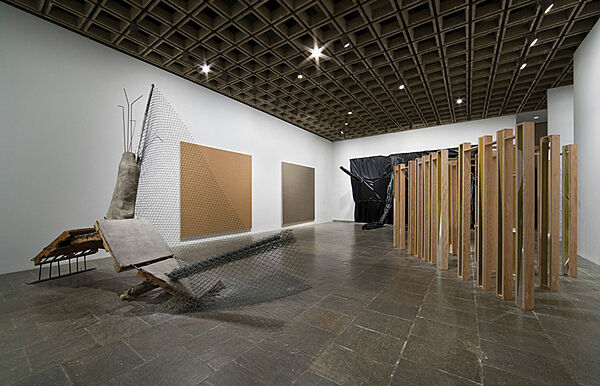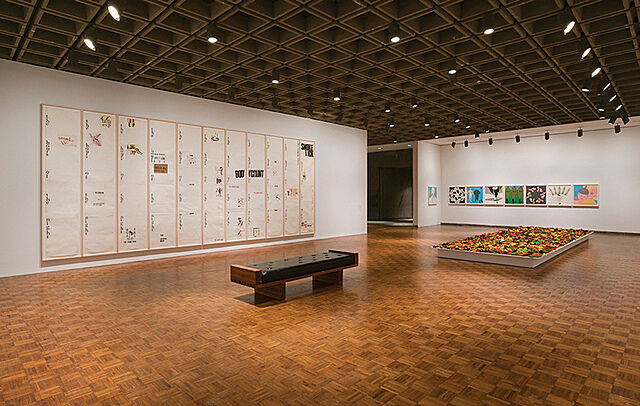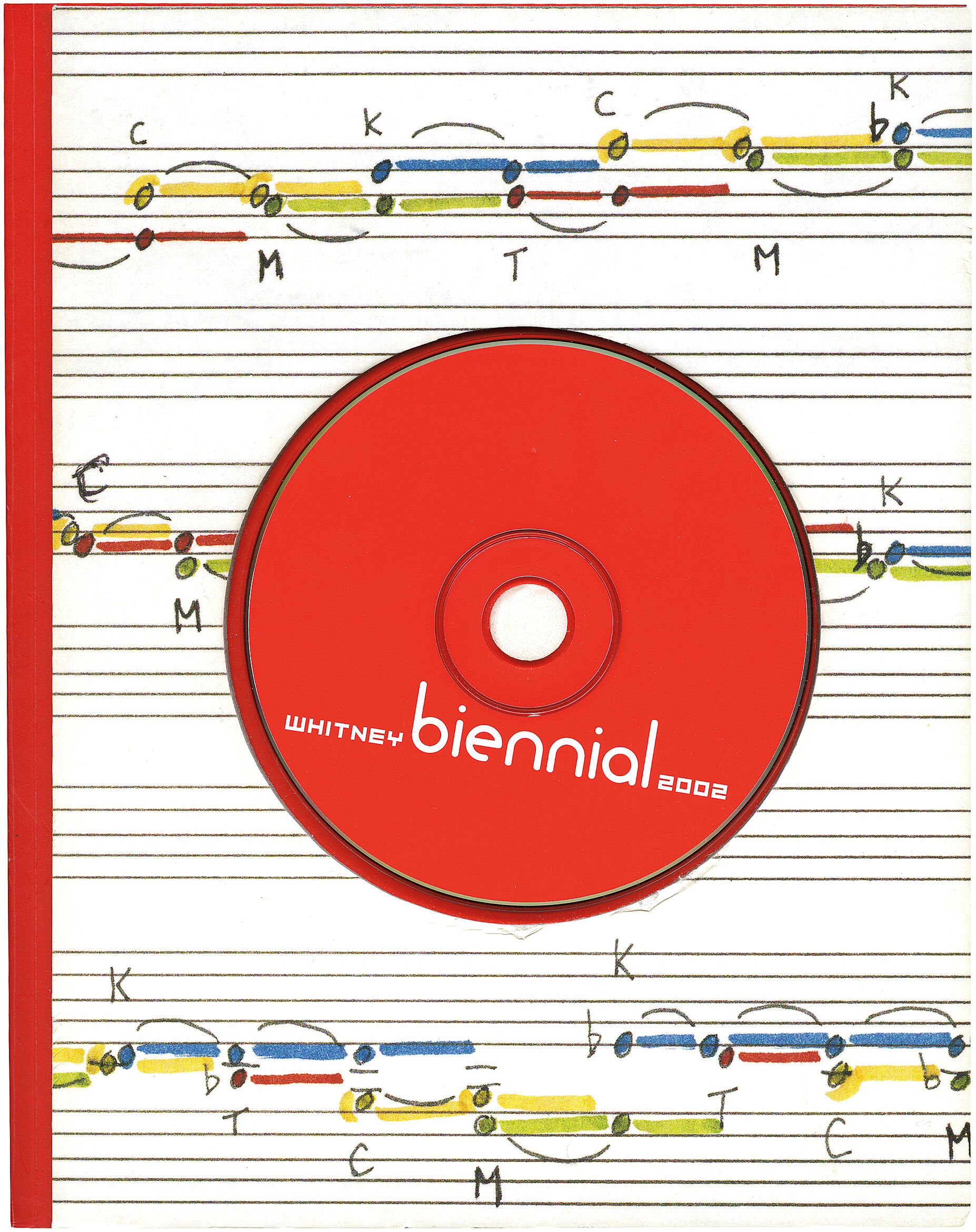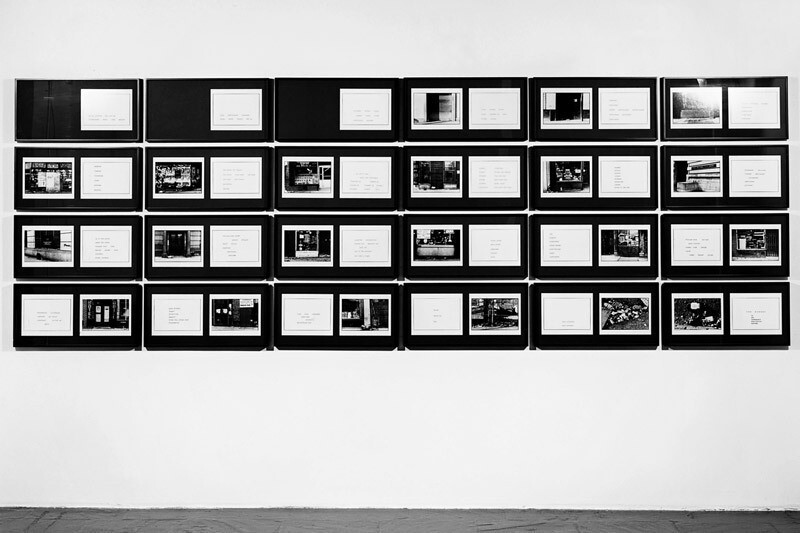Rachel Harrison
1966–
Rachel Harrison emerged in New York in the 1990s with sculptures and installations whose disparate elements coalesce into insightful, philosophical, and at times comedic networks of meaning. Through their titles, and the combination of carefully painted sculptural forms with appropriated objects, Harrison interrogates what it means to look and identify—whether this takes the form of aesthetic contemplation, anthropological classification, or the absorption of popular culture, history, and entertainment.
Referencing the French social anthropologist’s name in its title, Claude Levi-Strauss situates a taxidermic rooster and hen atop a pair of sculpted and brightly painted pedestal-like forms. Facing off, the animals simultaneously invoke Lévi-Strauss’s concept of binary opposition (the raw and the cooked), a passage or formal entryway, and an unbroken gaze or standoff across a divide. The notion of sending and receiving is further expressed, as each sculptural form rests on a cardboard box—one a USPS Priority Mail and the other a Sharp fax machine. At once flat-footed and esoteric, the work demonstrates the potential for figurative sculpture or statuary to employ language, found objects, abstract forms, and precise choreography to renew its communicative potential.
In a series of colored-pencil drawings featuring the singer-songwriter Amy Winehouse, then recently deceased, Harrison graphically juxtaposed her image with renderings of female figures or self-portraits by artists such as Marcel Duchamp, Pablo Picasso, and Martin Kippenberger. The series reminds us that identity and personification as a creative act occur across the widest spectrum of art history and popular culture.
Harrison’s Voyage of the Beagle, Two similarly pairs art-historical statuary with vernacular representations such as mannequins, a Barbie doll, figurative roadside attractions, and stuffed animals. The work references Charles Darwin’s 1839 travel memoir, which recounted his five years of exploration in the southern hemisphere aboard the H.M.S. Beagle, an expedition that resulted in the English 166 naturalist’s theory of evolution. Just as Darwin’s observations led him to conclude that all species are descended from common ancestors, Harrison’s collected photographs suggest a taxonomic study of anthropomorphic representation and its development over time and across cultures.
Beginning with the simple question “What does a sculpture look like?” Harrison carried an off-the-shelf digital camera with her for a year, documenting found objects and working within the technical limits of point-and–shoot photography. She then made a selection of fifty-eight images that are exhibited together in six subsets. “The order was very specific,” she explained. “I was interested in the linear aspect of a photo frieze, in which narrative is implied, but also in the fact that you can’t see them all at once. That’s where memory comes in, from image to image sequentially, but also across the work as a whole.”
Introduction
Rachel Harrison (born 1966) is an American visual artist known for her sculpture, photography, and drawing. Her work often combines handmade forms with found objects or photographs, bringing art history, politics, and pop culture into dialogue with one another. She has been included in numerous exhibitions in Europe and the US, including the Venice Biennale (2003 and 2009), the Whitney Biennial (2002 and 2008) and the Tate Triennial (2009). Her work is in the collections of major museums such as The Museum of Modern Art, New York; Metropolitan Museum of Art, New York; Hirshhorn Museum and Sculpture Garden, Washington, D.C.; and Tate Modern, London; among others. She lives and works in New York.
Wikidata identifier
Q4496069
Information from Wikipedia, made available under the Creative Commons Attribution-ShareAlike License . Accessed February 17, 2026.
Country of birth
United States
Roles
Artist, assemblage artist, installation artist, photographer, sculptor, teacher
ULAN identifier
500129198
Names
Rachel Harrison
Information from the Getty Research Institute's Union List of Artist Names ® (ULAN), made available under the ODC Attribution License. Accessed February 17, 2026.

